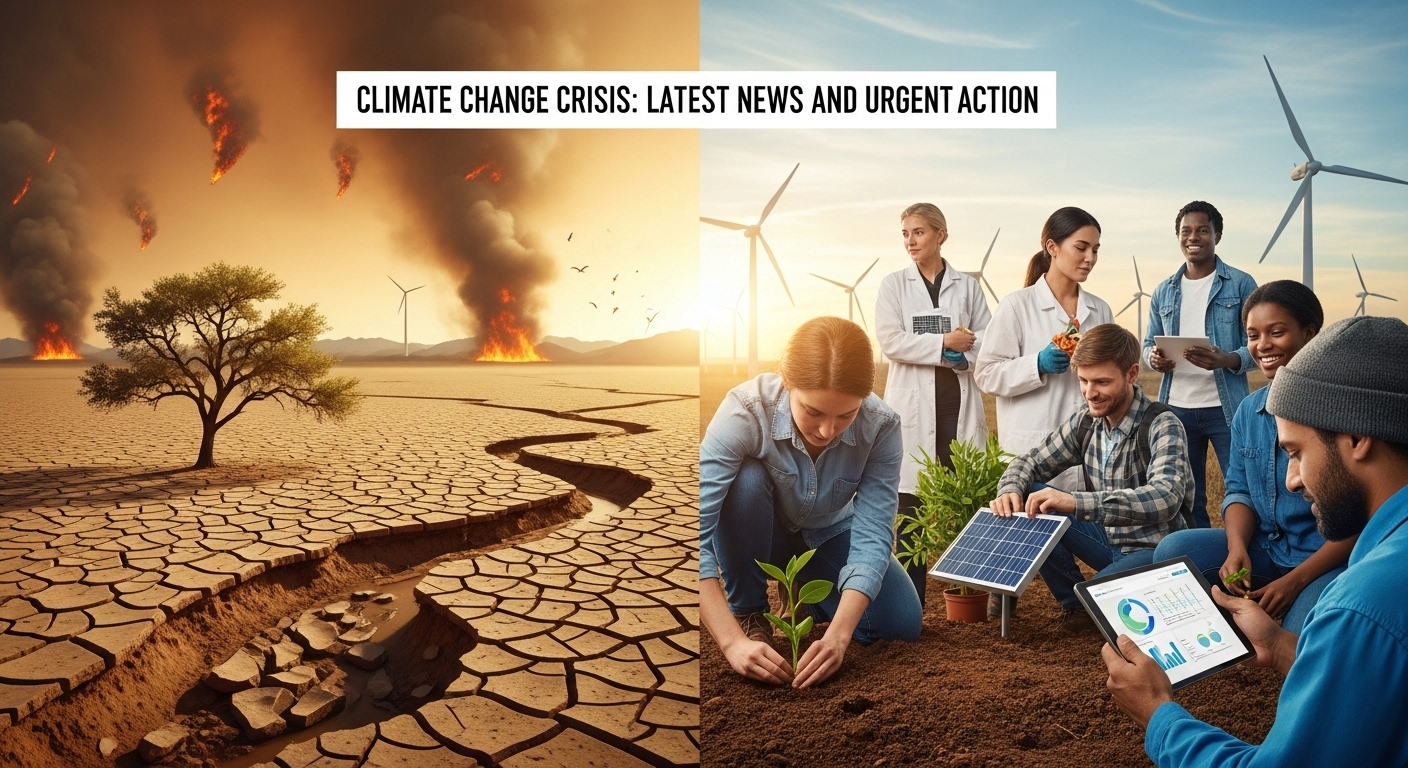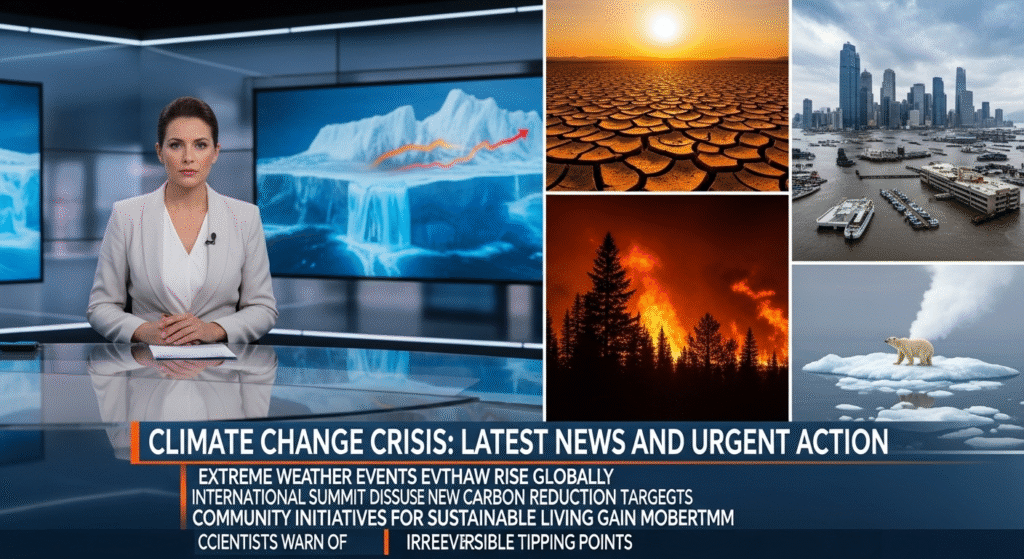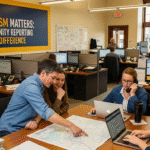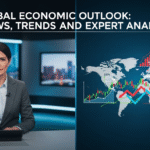Okay, let’s be real. The climate change crisis. It’s not exactly the cheeriest topic to discuss over a latte, is it? But here’s the thing – ignoring it isn’t going to make the polar bears any less soggy. And frankly, my garden is already confused; roses blooming in November? That’s just not right.
So, what’s new? What’s actually happening that should make us – you, me, the guy walking his dog – sit up and pay attention? Well, for starters, the reports are getting, shall we say, less optimistic. Remember when ‘global warming’ was the buzzword? Now it’s ‘climate crisis,’ ‘climate emergency,’ sometimes even ‘climate apocalypse’ if you’re reading certain corners of the internet. And while I’m not one for hyperbole, the underlying data… it’s hard to ignore.
The frustrating thing? It’s not like we don’t know what to do. We have the technology. We have (some of) the resources. What we seem to be lacking is… well, a collective sense of urgency and, frankly, the political will to make some tough choices.
The Headlines That (Should) Have Your Attention

You’ve probably seen the headlines flash across your news feed: record-breaking temperatures, melting glaciers, more extreme weather events. But let’s drill down a bit. It’s not just about hotter summers (though, trust me, here in [Your Location], we’ve had enough of those to last a lifetime). It’s about the knock-on effects. Think about it this way: melting ice sheets don’t just raise sea levels. They disrupt ocean currents, which then impacts weather patterns globally. It’s all connected, a delicate web of interconnected systems.
According to EPA, sea level has risen about 8-9 inches (21-24 centimeters) since 1880, with about a third of that rise happening in just the last 25 years. And the rate of rise is accelerating. What does that mean in practice? Increased flooding in coastal communities, saltwater intrusion into freshwater sources, and displacement of populations. It’s happening now, not in some distant, dystopian future.
Wait, there’s something even more interesting here. I initially thought it was all about temperature, but the chemistry side of things is just as concerning. The ocean absorbs a huge amount of CO2, but all that extra CO2 is making it more acidic, threatening marine ecosystems. This process is harmful for shell-forming animals like corals and shellfish, and could impact fisheries. Geopolitical Tensions: Analyzing Global Conflicts and Diplomatic Efforts.
Beyond Doom and Gloom: Taking Action, Seriously
Okay, I know, it all sounds a bit… bleak. But here’s the thing: despair isn’t a strategy. So, what can we actually do? And I’m not just talking about recycling (though, yes, please keep recycling!).
Firstly, we need to demand action from our leaders. And I mean real action, not just empty promises and greenwashing. We need policies that incentivize renewable energy, discourage fossil fuels, and invest in climate resilience. Think carbon pricing, stricter emissions standards, and funding for research and development. Are you looking for gaming site? Check out Poki.
But policy changes only go so far. Each of us can adjust our lifestyles to make a smaller footprint. I keep coming back to this point because it’s crucial: individual actions, when multiplied across millions of people, do make a difference. Here are some quick ideas:
- Eat less meat (especially beef – sorry, burger lovers).
- Drive less (walk, bike, take public transport when possible).
- Fly less (consider alternative modes of travel or offset your carbon footprint).
- Reduce your energy consumption (switch to energy-efficient appliances, turn off lights, insulate your home).
- Support businesses that are committed to sustainability.
Actually, that’s not quite right. It’s not just about individual actions OR policy changes. It’s about both. We need systemic change, but systemic change is driven by individuals demanding it.
The Role of Technology and Innovation
I’ve got to admit, this part fascinates me. Technology isn’t a silver bullet, but it is a critical tool in our fight against climate change. Think about the advances in renewable energy – solar, wind, geothermal. Costs are coming down, efficiency is going up, and innovation is happening at a breakneck pace. We’ve also got carbon capture technologies, next-generation batteries, and sustainable agriculture practices.
But – and this is a big but – technology alone isn’t enough. We need to deploy these technologies at scale, and that requires investment, infrastructure, and supportive policies. It also requires addressing the ethical and social implications of these technologies. Are these technologies making a difference? AWS Backup Adds New Approval of Multiple Pages for Logically Air Safes – Amazon Web Services. They could be.
During my five years working with environmental technologies, I have noticed that one of the biggest barriers to adoption is often public perception. People are wary of new technologies, especially when they involve complex scientific concepts. It’s our responsibility to communicate the benefits of these technologies in a clear and accessible way, and to address any legitimate concerns.
FAQ: Your Climate Change Questions Answered
Is it too late to do anything about climate change?
No, it’s not too late, but the window of opportunity is closing rapidly. The sooner we take action, the less severe the impacts will be. Think of it like this: the longer you wait to fix a leaky faucet, the more damage it will cause. We can still prevent the worst-case scenarios, but it requires immediate and concerted action.
How do I know if my actions are actually making a difference?
This is a valid concern! It can feel like your individual efforts are just a drop in the ocean. But remember, collective action is the key. Calculate your carbon footprint and track your progress. Support organizations that are working on climate solutions. And most importantly, talk to your friends, family, and community about climate change. Awareness and education are crucial.
What about the economic impact of climate action? Won’t it hurt businesses and jobs?
This is a common misconception. While there may be some short-term costs associated with transitioning to a low-carbon economy, the long-term economic benefits are far greater. Investing in renewable energy, energy efficiency, and sustainable infrastructure will create new jobs, boost innovation, and improve our competitiveness. And the costs of inaction – the economic damage caused by extreme weather events, sea-level rise, and other climate impacts – will far outweigh the costs of action.
Isn’t Climate Change Crisis a natural process?
While the Earth’s climate has naturally changed throughout history, the current rate of warming is unprecedented. Scientific evidence overwhelmingly shows that human activities, particularly the burning of fossil fuels, are the primary driver of this rapid warming. Natural climate variability cannot explain the changes we are seeing today.
So there you have it. The climate change crisis: latest news and urgent action. It’s a complex issue, but it’s not an insurmountable one. With a combination of individual action, policy changes, and technological innovation, we can create a more sustainable future. The time to act is now.



